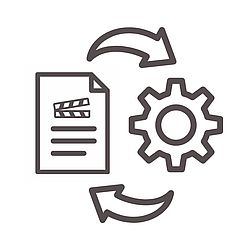
Resources for NBS Education
NBS EduDirectory - The resource landscape of NBS Education
This repository provides a comprehensive list of available resources, including guidance, reports, tools, and services developed around education about NBS. These NBS education resources and materials were discovered through EU-funded online repositories and through desk research. It is updated annually. You can also consult it as a database on PowerBI.
Have a look at further resources repositorites of the NBS and the education communities at the NBS EduHub.
Search results ( 1 - 5 of 60 )
“Stand up for nature-based solutions! There is no Planet B!” - Story of Implementation
The implementation of the NBS EduWORLD Learning Scenario “Stand up for nature-based solutions! There is no Planet B!” involved a three-month series of multidisciplinary workshops aimed at increasing students' awareness of nature-based solutions (NBS) and Sustainable Development Goals (SDGs). Through a collaborative approach across mathematics, geography, IT, and biology, students analysed environmental data, explored ecosystems, studied biodiversity, and used digital tools for research and visualization. Hands-on projects, such as investigating microplastic pollution, reinforced practical learning, while expert talks deepened their understanding of sustainability. The initiative successfully promoted critical thinking, digital literacy, and a sense of global responsibility, empowering students to advocate for NBS.
Topic: Understanding of NBS
Educational Level: Secondary Education
Language: Dutch English French German Greek Italian Lithuanian Portuguese Romanian Spanish
Organisation: European Schoolnet

A far-sighted fox
An informal education resource for NBS, focusing on the topic of restoring and preserving green areas in cities to ensure the well-being of the whole eco-system.
Topic: Understanding of NBS
Educational Level: All Levels
Language: English
Organisation: ICLEI, OPPLA, IUCN, Biodiversa+, Steinbeis Europa Zentrum
Ask the expert! - NBS Chat with Nanco Dolman, Leading Professional in Water Resilient Cities at RHDHV
The NBS chats provide students with a more informed image of what Nature-Based Solutions are, as well as jobs and careers in this area. In this video recording, students chat with Nanco Dolman, a leading professional in Water Resilient Cities.
Topic: Understanding of NBS
Educational Level: Primary Education
Language: English
Organisation: European Schoolnet
Ask the expert! - NBS Chat with Natascha Wahlberg, Co-founder of an Environmental Cooperative
The NBS chats provide students with a more informed image of what Nature-Based Solutions are, as well as jobs and careers in this area. In this video recording, students chat with Natascha Wahlberg, co-founder of an environmental cooperative.
Topic: Understanding of NBS
Educational Level: Primary Education
Language: English
Organisation: European Schoolnet
Bringing Nature Back with Little Hands
This Learning Scenario develops students' problem-solving skills by transforming a pre-school garden into a natural learning area using nature-based solutions (NBS). As a result of the examinations made in the school garden, students determine the products and prototypes they want to design in collaboration. In the stage of determining the materials they will use, they test their durability, usability and suitability for the product they design with certain tools and determine their products. In the group meetings, they explain the design they have determined and the materials they will use to their friends through group spokespeople and make improvements with the question-and-answer method. After designing their products, they test them and see if they serve their purpose, and make improvements again. With five weeks of exploratory, practical, STEM-integrated activities, children aged 3-5 obtain data by observing their products to see if they can find solutions to environmental problems. They apply their engineering and technology skills to design creative solutions, reflect on their learning by collecting data and documenting progress. and improve their designs. During this process, the school and family are in communication. In the 5th week, students share their prototypes and data with their parents through an exhibition and presentation.
Topic: Understanding of NBS
Educational Level: Early Childhood Education
Language: English
Organisation: European Schoolnet

Funded by the European Union. Views and opinions expressed are however those of the author(s) only and do not necessarily reflect those of the European Union or the European Commission. Neither the European Union nor the granting authority can be held responsible for them.